24 January 2020
This week, the whole school has the same Talk Time homework: What is a drug?
This homework, which links to our Living and Learning statement, is a first step in children becoming aware of drugs. There are a few key points you may wish to talk about at home. Children need to be aware that some drugs are helpful, some are harmful, some are legal, some are illegal. Don’t forget to consider that even the legal or helpful ones can be harmful.
Below are some question prompts that could help shape your discussion…
- What is a good definition for a drug?
- What is a drug? What is not a drug?
- Are all drugs bad?
- Why might some people need to take medicines?
- Who can prescribe medicine?
- Who should administer medicine?
- What should you do if you find some medicine?
- Should you take medicine that isn’t yours?
Children should be prepared to discuss what they’ve talked about at home during our homework review next week. This homework should be completed by Thursday 30 January.
17 January 2020
This week, the whole school has the same Creative homework:
I can show different ways to make things better.
This homework, which is due on Thursday 24 January, is an opportunity for children to reflect on our living & learning statement for this week: I can make things better.
Children should think about ways to make things better in a variety of different situations and contexts:
- in class
- in a friendship group
- at playtimes
- at home
- with siblings
- out and about (countryside, park)
- the wider environment (recycling)
You could consider…
- Why should we try and make things better?
- How do we do this?
- When should we apologise?
- What is the effect it has on others around us when we make things better?
- Older children might want to consider the benefits of restorative justice.
Don’t forget to be creative! Produce a report or diary; capture photos of making things better; create rules for better games at play times; make a poster about how to say sorry; or, think of your own creative response.
This homework will be celebrated in our weekly homework review.
10 January 2020
Homework this week is Practice Makes Perfect and is due in on Thursday 14 January 2020.
Practice Makes Perfect: I can read fluently and with expresion.
Your child has short text in their homework books. They need to read it an adult twenty times, focusing on fluency, adapting to punctuation and using expression.
This will be reviewed, as a class, on Thursday 14 January 2020.
13 December 2019
This week’s homework is Talk Time and will be discussed on Thursday 19 December 2019.
I can talk about what I was learning in these photos.
Here are some photographs of some learning we’ve done this half term. Ask your children what the children in the photograph were doing, what they learned from this lesson and what more they might like to learn or get better at in this area of their learning.
This is a great opportunity to find out more about your child’s experience at school and, if you enjoyed this discussion, don’t forget photos are posted on Year 3’s Class News so you can have these conversations each week!
Living and Learning – anti bullying.
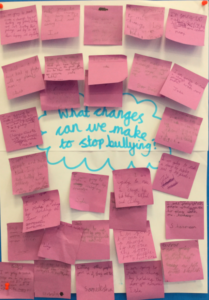
Maths – column addition and subtraction.
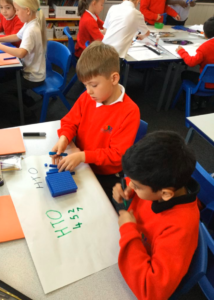
Geography: OS maps and compass language.

Living and Learning: 8 Rs for learning.
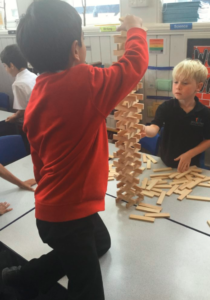
Science: states of matter.
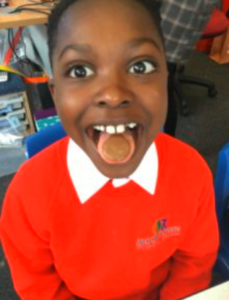
06 December 2019
This week, the whole school has the same Creative homework, which should be returned by Thursday 12 December.
The children are invited to respond to something from either a cultural or a spiritual perspective.
I can show what I know and think about something cultural.
We’d like children to present their responses about a recent book they’ve read, film they’ve watched, piece of art they’ve looked at, piece of music they’ve listened to – anything cultural in fact.
We’re interested to read some sort of description (a summary, for example) and then your child’s opinions. This review might include pictures, an interview (your child could write a fictional script between himself/herself and the artist, for example), a letter (eg to or from a character, or perhaps even the author) – anything which might include your child’s responses!
However, your child might prefer to do the following:
I can show what I know about a festival.
Over the course of this term, some children in school may have celebrated a religious festival of some sort. This might have been
- the Muslim festival of Eid ul Adha
- the Sikh and Hindu festival Diwali
- the Jewish festival of Hanukkah, coming up in December
- the Christian festival (of course, celebrated by many non-Christians) of Christmas
- and the Chinese New Year festival, coming up
There are lots of other festivals and celebrations, which you and your child together might want to reflect on.
We invite children to respond to the sentence above – they might include a recount (like a diary entry), pictures, an interview (perhaps in a script). Your child might also choose to research a completely unknown festival, or they might even think about creating a brand new festival, one that everyone will celebrate.
29 November 2019
Homework this week is Practice Makes Perfect.
Practice Makes Perfect: I can remember what we’ve learnt in Maths.
This homework recaps what we’ve learnt so far in Maths. Each child has been given two sheets to complete at home. This includes place value, addition and subtraction. This is due in to be reviewed as a class on Thursday 5th December 2019.
Friday 22 November 2019
This week, the whole school has the same Talk Time homework: Which charity should our school support?
Next week, a charity will be decided for us to support for the year ahead – for example, when we have a performance, we’ll collect money for this particular charity. What charity does your child think we should support?
You could talk about:
- what a charity is
- why charities are important
- what sort of work they do
- charities that have meaning to your family, to school or the community
- national and international charities and their work
Next week, each class will vote (because in our school we make democratic decisions) for the charity they would like to support to form a shortlist. Then, our recently elected School Council will decide which charity we will support for the next year.
15 November 2019
All week, we’ve learnt about the 4 times table and it’s now your child’s turn to apply this to their homework.
Practice Makes Perfect: The four times table.
Below is a breakdown of what we’ve done in Maths this week and also acts as a guide to your child’s homework. Each child has two sheets in their homework books to complete. They need to choose a fact from the four times table and complete each quadrant of the sheet, accordingly.
They need to choose a calculation.
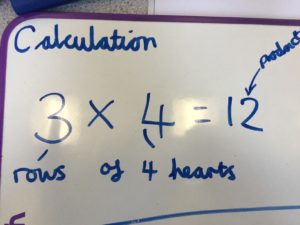
Complete an array that matches the calculation.
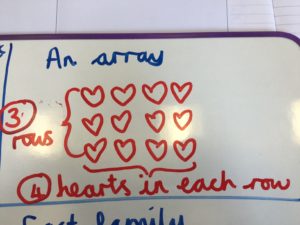
Write a story that matches their calculation.
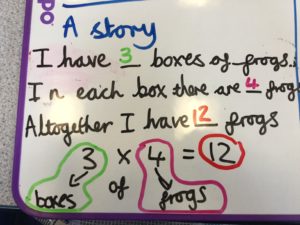
Use the sentence stems:
- I have…
- In each…
- Altogether I have…
Fill out the fact family for their calculation.
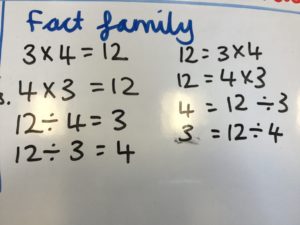
This includes two multiplication facts and two division facts (on the left). If they want a challenge, see if they can complete four more facts with the product at the beginning of the calculation (as shown on the right hand side of the image).
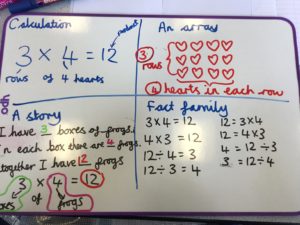
This is due in, and will be reviewed as a class, on Thursday 21st November 2019.
18 October 2019
This week, homework is Practice Makes Perfect and is due in on Thursday 24 October 2019.
Practice Makes Perfect: I can use formal, written methods to add and subtract.
For the past 2 weeks, Year Three have been learning how to use the column method to add and subtract 2 digit numbers from 3 digit numbers. Often, these are calculations where an exchange between columns is needed. In Year Three, your child is expected to be able to do this accurately and quickly.
If you’re unsure how to do this, don’t worry! Your child is now an expert. There’s also guides on our class news page.
Top Tips: Take care not to confuse your child! This homework has been given out knowing your child can do the work using a particular method taught. Ask your child to explain methods, talking through what they’re doing, and to check their answers.
Friday 11 October 2019
Friday 11 October 2019
This week, the whole school has the same Talk Time homework. In preparation for the upcoming School Council elections, children should complete one of the following tasks:
- I can prepare a speech (School Council elections).
- I know the importance of voting.
It’s time for children to consider if they would like to stand for election for our new School Council. With two representatives from each class chosen democratically by their peers, all children are encouraged to take an active part in pupil voice.
Elections for our new school council will take place on Thursday 24 October with our polling station and ballot boxes at the ready. Candidates will have the opportunity to give their election speech in class to their peers.
What makes a good school councillor has been considered by our current school council.
- ‘use all the 8 Rs for learning’
- ‘be respectful’
- ‘help others’
- ‘be a good speaker and listener (to members of your class and in the meetings)’
- ‘tell the truth’
- ‘be confident with your ideas’
- ‘accept the views of others even if you don’t agree’
- ‘be friendly and approachable’
- ‘make good choices in class and around school’
Hints for your speech include:
- What skills and abilities would a good school councillor have?
- What are you particularly good at that would help you to be a great school councillor?
- What do you think would make the school better?
- What could you do that people would really like?
- Think of things that are realistic, maybe that you could do yourself, rather than having to ask other people to do.
Thank you to our current school councillors for all their ideas and contributions. We hope you have enjoyed this role and responsibility. You’re welcome to stand again for election.
Good luck to all children who decide to stand in the elections.
If you choose not to stand in the election, you should instead consider the importance of voting.